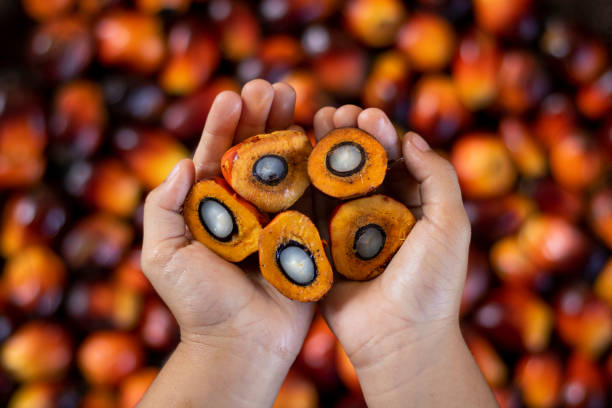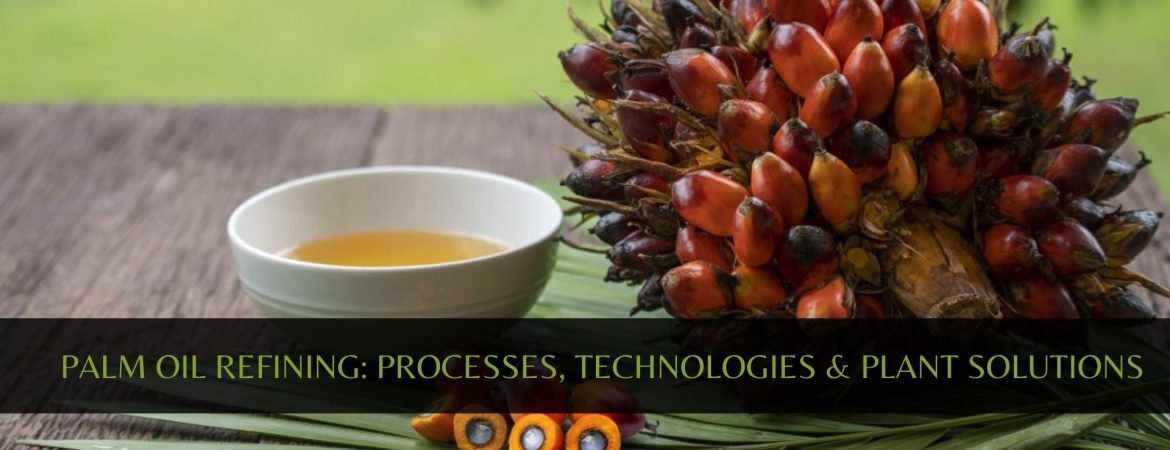Palm oil is one of the most widely used edible oils in the world, known for its versatility, stability, and high yield. It is an essential raw material in the food, cosmetic, and biofuel industries. However, crude palm oil (CPO) obtained directly from the fruit of the oil palm requires an extensive refining process to make it suitable for human consumption and industrial use. This is where advanced Palm Oil Refinery Plants play a crucial role.
A Palm Oil Refinery Plant removes impurities such as free fatty acids (FFA), phospholipids, gums, pigments, and odors, transforming crude palm oil into high-quality refined oil. Modern refineries are designed to ensure high efficiency, minimal oil loss, and compliance with international quality standards.
As a leading Palm Oil Refinery Plant Manufacturer & Exporter, Pemac Projects Pvt. Ltd. provides state-of-the-art refinery solutions that meet the growing demand for superior palm oil processing technology worldwide.
Understanding Palm Oil Refining
The refining of palm oil is a multi-step process that involves physical treatments (no chemical neutralization) to achieve the desired quality. The main stages of palm oil refining include:
- 1. Degumming
This step removes phospholipids (gums) from crude palm oil. Degumming can be achieved using water or acid. Proper degumming improves stability and prepares the oil for physical refining.
2. Bleaching
During bleaching, the oil is treated with natural earth or activated clay to remove pigments, trace metals, and oxidation products. The process improves the color and extends the shelf life of the oil.
3. Deodorizing / Physical Refining
Instead of chemical neutralization, physical refining removes free fatty acids (FFA) by high-temperature steam distillation under vacuum.
This process:
• Strips FFAs
• Removes odors and volatile compounds
• Purifies the oil without using caustic soda
The result is high-quality RBD palm oil with excellent odor, color, and stability.
4. Fractionation
Palm oil fractionation separates the oil into solid (stearin) and liquid (olein) components through controlled crystallization and filtration. Palm olein is widely used for frying and cooking, while palm stearin is used in margarines, confectionery fats, and non-food industries.
Each of these refining processes is crucial to achieving the desired specifications of refined, bleached, and deodorized (RBD) palm oil that meets international standards.
Types of Palm Oil Refinery Plants
1. Batch Type Refinery – Suitable for small-scale operations.
2. Semi-Continuous Refinery – Medium-scale, efficient & semi-automated.
3. Continuous Refinery – Large-scale, fully automated, high throughput.

Palm Oil Refining Process Flow
Updated to remove chemical neutralization and include physical FFA removal:
• Crude Palm Oil (CPO) Storage – Stored in tanks before refining.
• Heating – Removes moisture and prepares for degumming.
• Degumming – Removal of gums by adding water or acid.
• Bleaching – Pigment and impurity removal using bleaching earth.
• Filtration – Removes spent earth and clarifies the oil.
• Deodorization / Physical Refining – High-temperature steam distillation removes FFA, odors, and volatiles.
• Fractionation – Crystallization separates palm olein & stearin.
• Final Filtration & Storage – Oil is filtered, cooled, and stored.
This systematic physical refining process ensures pure, stable, consistent-quality RBD palm oil.
Benefits of Palm Oil Refining
Refining crude palm oil not only improves its appearance and quality but also enhances its shelf life and commercial value. Some key benefits include:
Removal of Impurities: Eliminates unwanted components like FFA, gums, and waxes.
Improved Shelf Life: Reduces oxidation and rancidity, making oil more stable.
Better Color and Odor: Ensures a clear, golden-yellow appearance with a pleasant aroma.
Increased Market Value: Refined oil attracts higher prices in the global market.
Compliance with Food Standards: Meets quality norms such as FSSAI, ISO, and HACCP.
Refined palm oil is widely used in cooking, bakery, confectionery, margarine, soap, and cosmetic manufacturing, making it a valuable product across multiple industries.
Applications of Refined Palm Oil
Refined palm oil and its fractions have diverse applications:
Palm Olein – Used for frying, cooking oils, and snack foods.
Palm Stearin – Used in margarine, shortening, and confectionery fats.
RBD Palm Oil – Used in food manufacturing, soaps, detergents, and biodiesel.
Industrial Applications – Used as a base in oleochemicals, lubricants, and surfactants.
The flexibility of refined palm oil in both edible and industrial sectors highlights the importance of advanced refining technology.
Technological Advancements in Palm Oil Refining
Modern palm oil refinery plants incorporate cutting-edge technologies for improved efficiency, safety, and sustainability. Some key advancements include:
Automation & Control Systems – PLC-based systems ensure precise temperature, pressure, and flow control.
Energy Recovery Systems – Use of heat exchangers and condensers reduces fuel consumption.
Vacuum Deodorization Units – Minimize oxidation and improve oil quality.
Dry Fractionation Technology – Allows precise separation without chemical additives.
Environment-Friendly Design – Includes effluent treatment systems and low-emission equipment to meet environmental standards.
Pemac Projects integrates these technologies to deliver plants that ensure low utility consumption, minimal oil loss, and superior product output.
Quality Control and Testing
Quality assurance is a vital part of palm oil refining. Continuous monitoring is done at every stage to ensure consistent quality of the final product. Typical tests include:
1. Free Fatty Acid (FFA) Value
2. Peroxide Value (PV)
3. Moisture Content
4. Color and Odor Analysis
5. Smoke Point and Stability Tests
By implementing strict quality control measures, refinery plants guarantee oil that meets global export standards.
Environmental Considerations
The palm oil industry is often scrutinized for its environmental impact. Therefore, modern refinery plants emphasize sustainable and eco-friendly operations. Key sustainability features include:
Effluent Treatment Plants (ETP) to treat wastewater before discharge.
Waste Heat Recovery Systems to reduce fuel use.
Low-Emission Boilers and Furnaces to control air pollution.
Solid Waste Management to reuse or recycle bleaching earth and byproducts.
Pemac Projects focuses on designing refinery plants that align with green engineering principles, reducing carbon footprint while ensuring efficient production.
Global Demand for Palm Oil Refining Plants
The demand for palm oil refining plants continues to grow due to the rising consumption of edible oils in developing and developed nations. Asia, Africa, and South America have become major regions for palm oil production and refining.
Countries like Indonesia, Malaysia, Nigeria, Ghana, India, and Thailand are investing heavily in refining infrastructure to add value to crude palm oil and enhance export potential.
As a result, international manufacturers like Pemac Projects Pvt. Ltd. are playing a pivotal role in supplying turnkey refinery plants that cater to diverse capacity requirements and quality expectations.
Key Features of Pemac’s Palm Oil Refinery Plants
Pemac Projects designs and manufactures Palm Oil Refinery Plants with the following key features:
- Customizable Capacity – From small batch refineries to large continuous systems.
- High Efficiency – Minimal oil loss and optimized utility consumption.
- Corrosion-Resistant Materials – Use of stainless steel and robust alloys for long equipment life.
- Advanced Automation – PLC/SCADA systems for seamless operation.
- Compact Design – Space-saving layout with easy maintenance access.
- Global Standards Compliance – Plants designed to meet ISO, CE, and ASME standards.
Each plant is engineered for reliability, cost-effectiveness, and superior oil quality output.
Why Choose Pemac Projects Pvt. Ltd.
- Proven Expertise: Over two decades of experience in edible oil refining, solvent extraction, and oleochemical projects.
- Turnkey Solutions: Complete project management—from design and fabrication to commissioning and after-sales support.
- Global Reach: Successfully executed projects across India, Africa, Asia, and the Middle East.
- Dedicated R&D: Continuous innovation to meet evolving industry standards.
- Customer-Centric Approach: Every project is designed as per client-specific needs and local conditions.
Pemac’s strong technical foundation and global presence make it a trusted partner for palm oil processors worldwide.



Leave A Comment